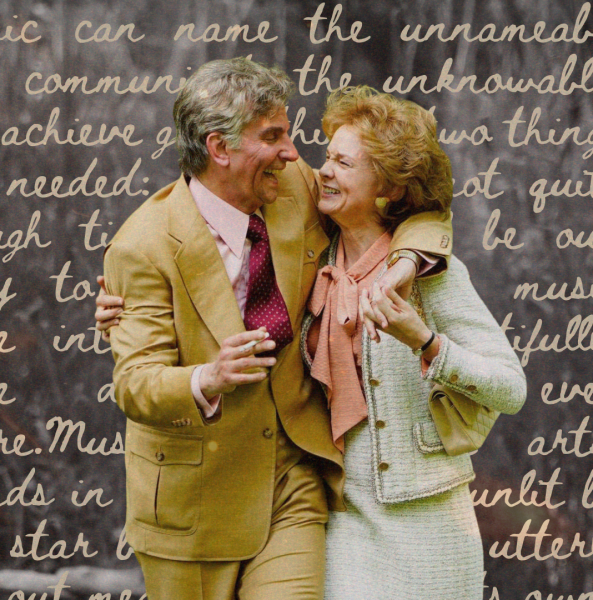Biopics are hard to get right. They often try to do too much and fail to properly capture the people they are about. Bradley Cooper’s sophomore film, “Maestro,” struggles with the same issues. Rather than trying to break down the vast life and career of conductor Leonard Bernstein, it focuses on a specific part: his marriage to Felicia Montealegre. Unfortunately for Cooper, his specificity doesn’t help make the film more interesting.
“Maestro” opens with a quote from Leonard Bernstein himself—“a work of art does not answer questions, it provokes them; and its essential meaning is in the tension between the contradictory answers.” Certainly this is a staple of the genre, setting the film up for mediocrity. However, the first scene is surprisingly gorgeous, showing delightfully grainy footage of Bradley Cooper playing the conductor under presumably ten tons of prosthetics and make-up. Despite the prosthetic controversy, it’s hard to deny the skill of Kazu Hiro, the mastermind behind the look.
Every frame of “Maestro” is stunning. The amount of care Cooper put into the look of each scene is meticulously crafted to perfection. If nothing else, “Maestro” is certainly a wonder to look at, changing style between decades; it starts out in the 50s with the classic black and white, slowly inches towards modernity through the muted colors of the 60s and velvet suits of the 70s, until it finally reaches the loud pop of the 80s.
Where the film suffers a decline in its quality, however, is in the story. “Maestro,” like too many biopics, adds nothing new to the story of Leonard Bernstein. Watching the movie feels a bit like reading a bedazzled Wikipedia article: sure, the look is there, but the actual content is only surface-level. The audience doesn’t walk away from the movie with a newfound appreciation of Bernstein’s work; in fact, it hardly focuses on his career at all. This isn’t an issue by default, but a film about the man who wrote the music for “West Side Story” surely deserves a peek into his creative process.

Where the story is let down, visuals and performances lift it up. Cooper’s passion for the conductor and his story is clear, even if it wasn’t executed in the best way. When he isn’t suffocating under pounds of old-age make-up, Cooper is able to display the intricacies of a complicated man with full emotional effect. Carey Mulligan, too, who took on the mammoth task of portraying Felicia Montealegre, demonstrates her expertise in subtle but powerful acting. Indeed, every one of her facial expressions seems to contain layers of powerful and conflicting thoughts and feelings. Cooper and Mulligan have a touching chemistry too, and they play a believably complex couple, traversing through their almost-love story with delicacy.
Really the questions “Maestro” warrants are: was it necessary? Does Hollywood have enough biopics yet? How many will they have to make until all of the vaguely interesting people from history have a two-hour-long movie made about their lives? Will they ever stop? The answer to the last question, at least, is no, but as far as biopics go, “Maestro” is one of the best in recent years. It isn’t bad, it isn’t amazing, but it’s nice, and comes from a place of true adoration on Cooper’s end. Maybe the audience doesn’t care about Bernstein after the film, but Cooper certainly does, and that love alone is enough to make “Maestro” meaningful.








